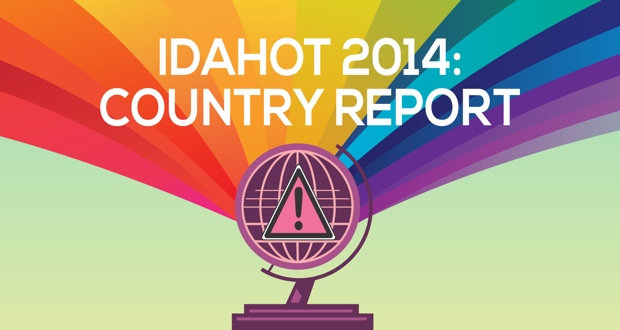India
In India, two contributions to the celebration of the IDAHOT 2014 were reported. Actions addressed the petition at the Supreme Court to officially recognise third gender communities, and also the theme of the Right to Love – with a project started by students from Jamia Millia Islamia.
Queer, Trans and other progressive groups that are part of the Chennai Rainbow Coalition (formed by several formal and informal local collectives working on gender, sexuality, environment, media, youth, culture, HIV/AIDS, and social justice issues), hosted a discussion on ‘The NALSA ruling and our struggle to end transphobia in India’ as part of their IDAHOT action.
At the event, the participants discussed the new developments in the Supreme Court after the petition in April.
The group Orinam, a social and support organisation for LGBT people and allies in and around Chennai, reported on the Supreme Court petition and ruling as followed:
A two-judge bench of the Supreme Court of India, after hearing the petition filed by the National Legal Services Authority, passed a historic judgement on Transgender Rights on April 15, 2014.
“Recognition of transgenders as a third gender is not a social or medical issue but a human rights issue,” Justice K.S. Radhakrishnan told the Supreme Court while handing down the ruling.
It was fitting that Supreme Court verdict of India chose April 15 specifically to rule favourably in the National Legal Services Authority v. Union of India [Writ Petition (Civil) No. 400 of 2012]. It was on April 15, 2008, that the Aravani (Transgender) Welfare Board was constituted by the Tamil Nadu state government, as the first of its kind in the country. Trans* and queer communities in the state celebrate April 15 as Transgender Day. Many welfare measures enacted by the TN Transgender Welfare Board have been taken up as country-wide recommendations by the Report of the Expert Committee of the national Ministry for Social Justice and Empowerment. Per Justice Sikri, these recommendations are to be implemented in six months (i.e. by October 15, 2014) after re-examining them in light of the legal declaration made in the judgement.
A small group of Indian student activists from Jamia Millia Islamia, also started a project which addresses the issue of the ‘Right to Love’. In the project, the students document true to life stories of love from across the country. “Love shouldn’t need a justification at all. It is our right,” it affirms.
Tahir Ahmed, co-founder of the project, explains, “For one, Right to Love is not just about the right to have sex with a consenting adult. We are talking about all the other rights too—be it the right to marry, the right to own property as a gay couple, the right to economic equality as a homosexual.”
Contributions to the project consist of short five minute video clips, which narrate personal stories of people struggling to cope with being queer in India, where same-sex acts are criminalized and Homosexuality is condemned by big parts of the society as ‘unnatural’.
The newspaper DNA, an English daily released across Mumbai, Bangalore, Pune, Indore, Ahmedabad and Jaipur reported on this project on May 19.
You can watch the first part of the series here:

